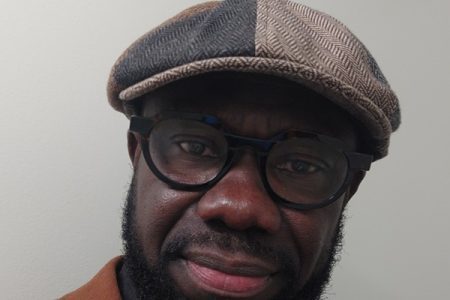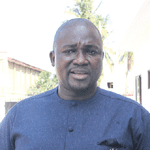Last week, I borrowed the word ‘topsy-turvy’ to describe the immigration crackdown in the USA.
The week before, I used another strange word–‘tohubohu’ (chaos)–to paint a picture of the interesting scenes on TV following the crackdown.
This week, I am compelled to deploy both words to describe the showdown in Ghana’s Parliament over the past days.
Democracy lovers buried their faces in their palms as primetime television showed our elected members of Parliament holding each other’s throats, cursing, shouting and destroying tables and microphones, over the vetting of ministerial nominees, most of whom are their own friends.
Collective shame
All the waters in Arabia will not be enough to wash away our collective shame.
Even as a committee sits to investigate what we all saw play out before us, another MP introduced another problem, perhaps, as a red herring to deflect from the disgrace of the day.
The Member of Parliament for Asante Akyem North, Ohene Kwame Frimpong, chose to make his first official statement to Parliament in Asante Twi, prompting his colleagues to engage in a debate on lingua franca, instead of the substantive matters of national development. On his first TV appearance on Joy News, the legislator defied the host to speak in Twi.
Debating the matter on the floor, the MPs defended their various interpretations of Parliamentary Standing Order 63 and displayed their scholarship in the English language, not any of our local languages.
I was hoping that at least one MP will join the Asante Akyem legislator to make their submission, at least, on that occasion alone, in their constituency’s dominant local dialect.
Instead, we witnessed interesting and farcical exchanges about the British man’s pronunciation of the word ‘local’, which a legislator had understood as ‘locu’.
In the end, the Asante Akyem legislator was granted the Speaker’s permission to address the House in Asante Twi, followed by a translation into English, delivered by himself.
Elmina English
What is the place of our local languages in Ghana today? Or, as Kofi Abakah Sey asked in his seminal 1973 exploratory survey on Ghanaian English, what is the variety of English spoken in Ghana and what accounts for its uniqueness and distinct phonological features?
The English language has been with us since 1529 when English missionaries introduced it in formal education in Elmina.
Over the years, the language has grown in vocabulary, style and importance–along with global trends and technological developments–but the variety of spoken and written English generally identified as Ghanaian English, remains distinctly Ghanaian.
The language of Parliament, as contained in Standing Order 63, is decidedly English, and with some accommodation, a Ghanaian language.
Which Ghanaian language? Can we imagine a parliament in toxic tohubohu where MPs from various constituencies elect to speak different languages and dialects to entertain and answer to the language demands of their respective constituents?
The English language cures this mischief.
It does not seek to displace the unique place of our indigenous languages in our original organic thinking.
Indeed, for speakers of Ghanaian English who produce our understanding of English morphemes and vocabulary as we understand them in our traditional languages, we carry the two along.
That is why we code-switch (change language for occasion and context).
By the way, how effective are Ghanaians in the use of our local languages? While pleading to speak Twi on the floor, Ohene Frimpong had written his submissions in English.
The MP’s opening sentence in Twi was grammatically incorrect. “De3 3dinkan, m3da y3nua baa Felicia Adjei, s3 ode ns3m…”
The MP had wanted to say: “To begin with, I would like to thank our sister Felicia Adjei for bringing to the fore these matters….” He omitted “ase” as in “thank you”.
Yet, he was flawless when he did the translation into English. Mostly, proponents behind the promotion of our local language have confused correctness in pronunciation for fluency.
The MP’s constituents may not have voted for him if they found that he would never be able to speak English in Parliament.
His campaign posters in the constituency were written in English. That is how Hon. Ama Sey lost her seat.
Aborigines and Ellembele
This is not the first time a member has moved to promote our local languages in Parliament. Exactly a year ago, then Deputy Minority Leader, Enmanuel Kofi Buah, MP for Ellembele, advocated for the promotion of the Nzema language to promote Ghanaian culture and save our local languages from extinction. MPs cited the Asian Tigers as places where local languages are used for official government business.
Speaker Bagbin referred the matter to the Committees on Education, Culture, Tourism and Finance, to put the necessary facilities in place. It did not work.
I am a regular visitor to the Canadian House of Commons and the Senate. In both Houses, there are two official languages: English and French.
The original owners of the territory called Canada (First nations-Indians, Metis and Inuit) did not speak any of the country’s official languages.
Indeed, the name Canada comes from the Huron-Iroquois word ‘Kanata’, which means ‘village’.
While they still speak their indigenous languages today, the Official Languages Act of 1969, which was revised and overhauled as recently as 2023, recognises only English and French.
The Act does not also recognise any of the three fast growing languages in Canada today: Punjabi, Mandarin and Spanish. Jagmeet Singh, MP and leader of the NDP, has not requested to speak Punjabi on the floor. There are weightier matters.
Language is dynamic. That is a truism. But for many things, language is constant. For the Parliament of Ghana, English is one of those constants.
Kwesi Tawiah-Benjamin
Tissues Of The Issues
bigfrontiers@gmail.com

